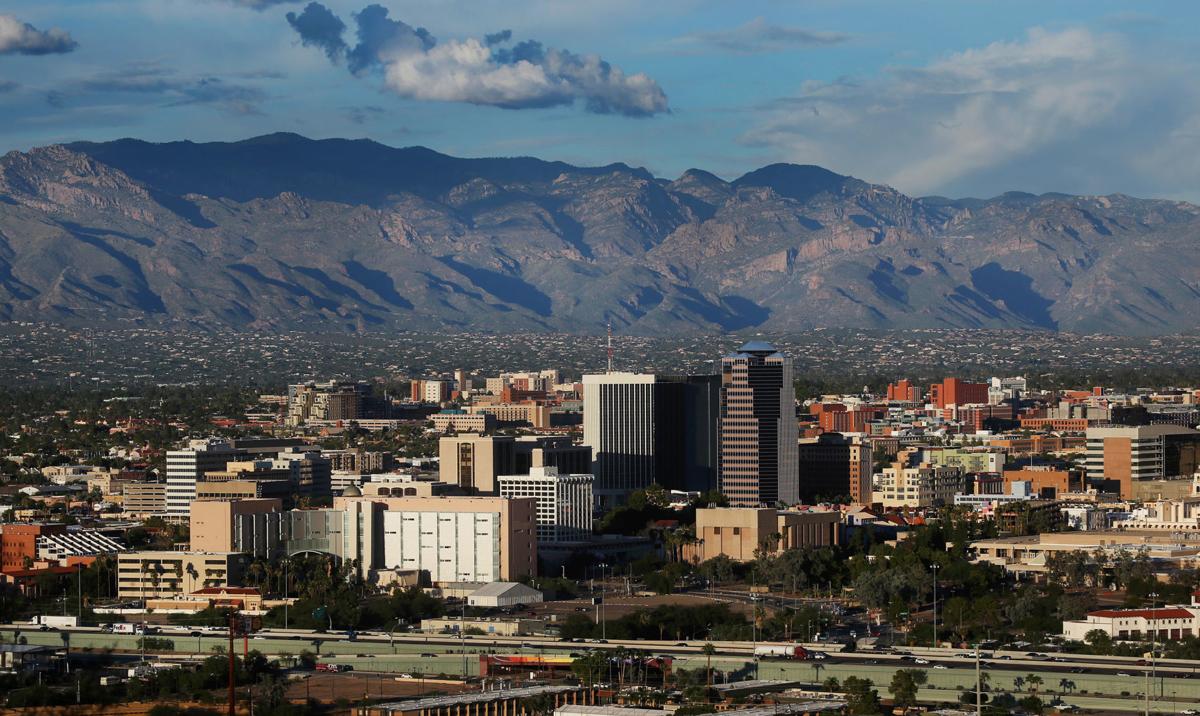It has been a year.
From a wildfire in the Santa Catalina Mountains to protests against racial injustice in Tucson and around the world and, of course, the wide-ranging and devastating effects of the COVID-19 pandemic, 2020 has brought with it plenty of challenges, uncertainty and grief.
But also hope.
At #ThisIsTucson, we often have the privilege of looking for the bright spots in our city. And we have continued to do that even during this most challenging of years. These stories don't ignore the hardships we have faced but rather point out the resilience and compassion of our community in spite of them.
Here are seven #ThisIsTucson stories that gave us hope despite all things 2020.
Tucsonans take care of each other through mutual aid efforts
Tucson mutual aid groups and neighbors have organized on their own during the coronavirus pandemic to help support others. These groups have distributed food, sewn masks, made sanitizer and shared resources.
Tucson mutual aid groups and neighbors have organized on their own during the coronavirus pandemic to help support others. Here are three examples of the ways Tucsonans are taking care of each other.
Tucson food community comes together to help charismatic chef who opened during outbreak
Juan Almanza opened Tucson Mexican restaurant El Taco Rustico during the coronavirus outbreak after the Tohono O'odham Swapmeet, where he normally did business, closed. Restaurant owners from around the city showed up to support him at his new restaurant, even as dining rooms around Tucson shut down following spring closure orders.
Juan Almanza opened Tucson Mexican restaurant El Rustico during the coronavirus outbreak.
Tucson neighbors get creative to spread kindness, not germs
Early on in the pandemic during Arizona's spring stay-at-home order, Tucsonans used chalk, homemade signs, painted rocks and stuffed animals to share messages of encouragement, hope and connection.
As Tucson neighbors social distance during the coronavirus outbreak, people are using signs, chalk, painted rocks, stuffed bear hunts and more to encourage others and stay connected.
A Tucson group of refugee women is sewing cloth face masks for health care workers
After their sewing group stopped meeting in person, more than a dozen refugee women sewing cloth face masks for health care professionals. The endeavor quickly received community support, with a partnership with Imago Dei Middle School providing the structure for each woman to be paid for her efforts, through community donations and some grant money.
A group of refugee women are sewing masks and donating them to Arizona health care workers during the coronavirus pandemic. Then, through community donations, a Tucson middle school is paying them for it.
A list of Black-owned businesses in Tucson created by the community
Following the death of George Floyd and the subsequent protests against racial injustice this summer, leaders in Tucson's Black community accelerated a project to create a community list of Black-owned businesses in Tucson to give people direct ways to support them. That list has grown into the resource Blax Friday and includes restaurants, markets, hair and nail salons, local musicians, apparel, nonprofit organizations and more.
The community-created Google doc includes Black-owned businesses in Tucson, Arizona including bars and restaurants, clothing, local musicians, nonprofits and more.
6 fun fall outdoor and drive-in movies around Tucson, Oro Valley and Sahuarita
With pools and movie theaters closed, this became the summer of the drive-in movie — one of many examples of innovation that we saw this year. These theaters popped up around the Tucson area, giving stir-crazy families a physically-distant way to get out of the house.
Check out these drive-in and open-air movie theaters around Tucson this fall.
Tucson program helping women- and minority-owned small businesses access COVID-19 relief money
Tucson allocated $2 million of federal CARES Act money to fund Small Business Continuity Grants through the We Are One/Somos Uno Resiliency Fund which is helping Tucson women- and minority-owned small businesses access relief money. Those grants helped small business owners like the women behind the food truck El Antojo Poblano and the bakery Dolce Pastello.
Tucson allocated $2 million of federal CARES Act money to fund Small Business Continuity Grants through the We Are One/Somos Uno Resiliency Fund which is helping Tucson women- and minority-owned small businesses access relief money.












